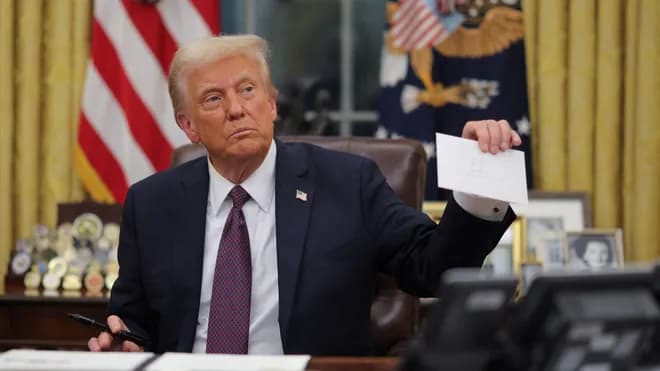The geopolitical landscape has shifted dramatically under the shadow of Donald Trump’s chaotic tariff war, which has inadvertently emboldened China"s ambitions for Taiwan. As the U.S. grapples with its own economic turmoil, voices within China are growing bolder, advocating for a swift and decisive approach to Taiwan, which they view as a critical step in reclaiming what they consider a lost territory.
China"s Growing Confidence and Aggressive Rhetoric
In a recent interview with Guancha, Victor Zhikai Gao, a former diplomat and current vice president of the Center for China and Globalization, articulated a chilling perspective on U.S. military support for Taiwan. He stated outright that the U.S. would never intervene militarily to protect the island, framing Trump"s foreign policy as an opportunity for China to accelerate its timeline for unification with Taiwan. This sentiment is echoed by hard-liners in Chinese media, who have begun to openly discuss the potential for military action, citing the U.S."s internal issues as a sign of weakness.
The Implications of Economic Policies on U.S. Global Standing
The tariffs imposed by the Trump administration, which reached as high as 145% on certain Chinese imports, were designed to punish China economically. However, they have inadvertently created consumer anxiety in the U.S., leading to rising interest rates and ultimately forcing the administration to roll back some of these tariffs. As reported by Brookings, these economic pressures not only threaten American consumers but also embolden China, which views these tariff fluctuations as a victory.

2024 All-State Band & Orchestra Program by Georgia Music ...
Taiwan"s Fragile Position and Domestic Sentiment
Amid increasing Chinese military pressure, Taiwan finds itself in a precarious situation. A recent survey from Taiwan’s Institute for National Defense and Security Research revealed that only 14% of respondents believe the U.S. would intervene militarily in a conflict over Taiwan. This alarming statistic highlights a growing sense of vulnerability among the Taiwanese populace, who may feel isolated in the face of escalating aggression from Beijing. As reported by Taiwan.gov.tw, the island remains a critical hub for semiconductor technology, making it a strategic target for Chinese ambitions.
Gray Zone Strategies and the Path to Unification
China"s approach to Taiwan is increasingly characterized by a "gray zone" strategy, which involves low-level military provocations designed to demoralize and destabilize the Taiwanese government without triggering a full-scale war. This gradualism aims to erode Taiwanese resistance and create conditions for unification that seem voluntary rather than forced. A report by the Lowy Institute outlines how these tactics invite compromise from Taiwanese elites, effectively absorbing resistance over time.

China carries out military exercises near Taiwan and Japan, sending 47 ...
International Response and the Future of U.S.-China Relations
As the Trump administration pushes allies to bolster their defense spending against China, it simultaneously fails to cultivate trust or maintain a cohesive international strategy. The lack of a united front against Chinese expansionism raises questions about the efficacy of U.S. leadership on the global stage. With rising hawkish sentiments on both sides, the potential for miscalculation and conflict looms large. If the U.S. does not act decisively and collaboratively, the narrative may shift, placing Trump as an unwitting ally to Chinese hegemony in Asia.


![[Video] Heavy clashes and gunfire reported in Baghdad, Iraq](/_next/image?url=%2Fapi%2Fimage%2Fthumbnails%2Fthumbnail-1768342239932-848qsh-thumbnail.jpg&w=3840&q=75)




![[Video] Gunfire between Iraqi security forces and Sadr militias in Baghdad](/_next/image?url=%2Fapi%2Fimage%2Fthumbnails%2Fthumbnail-1768343508874-4redb-thumbnail.jpg&w=3840&q=75)
